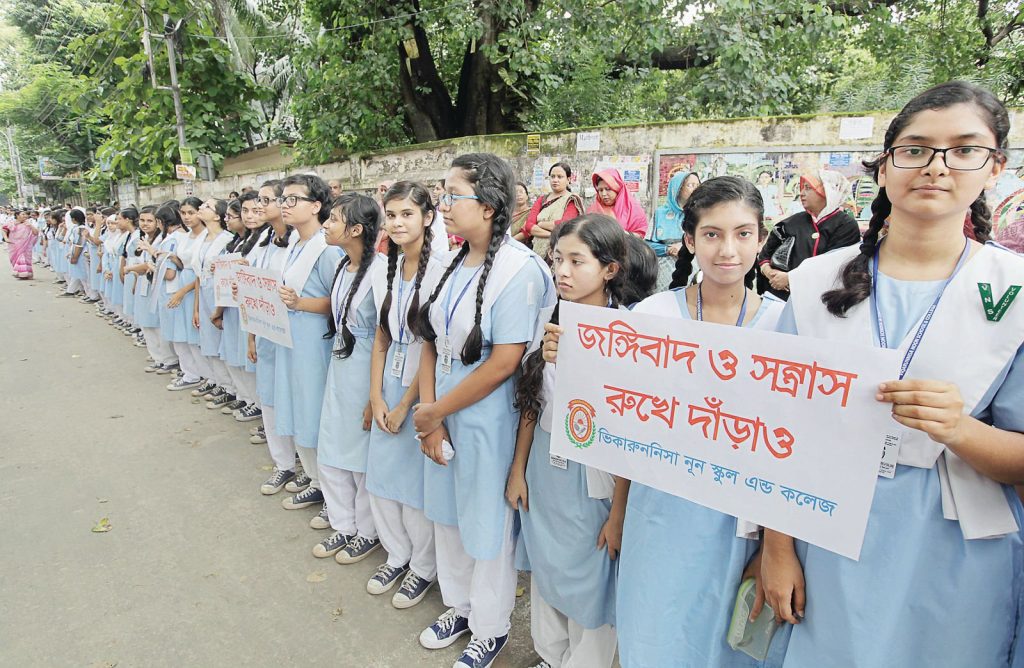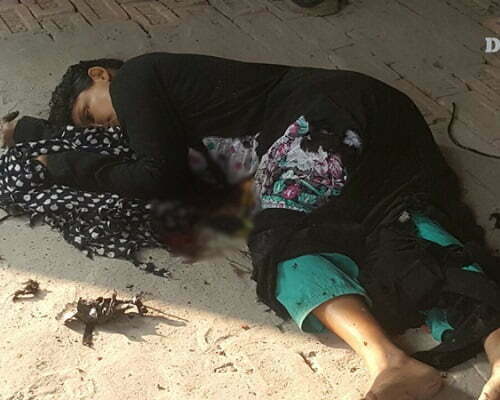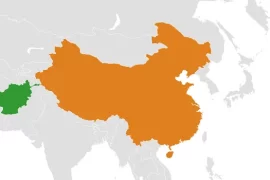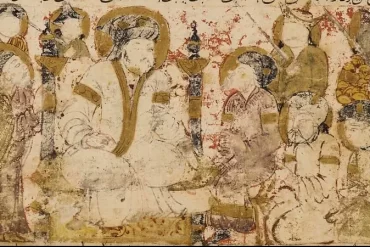Women have been playing a number of different roles in both the prevention of radicalization leading to violent extremism and the perpetration of terror activities. Recent incidents of violent extremism indicated that women have been playing both kinds of roles in Bangladesh. According to the World Bank estimate, 49.40% of total population of Bangladesh is women and the inclusion of women in the Prevention of Violent Extremism (PVE) or Countering Violent Extremism (CVE) (elaboration) efforts could give it a new and effective edge. Despite some constraints, the nature of social structure in Bangladesh provides women ample opportunities to exercise significant influence on the families and communities to position them to fight the signs and signals of radicalization and tendencies of violent extremism. Despite this enormous strength of women in P/CVE in Bangladesh, the recent trends in women’s participation in radical and violent activities has emerged one of the major challenges.
Bangladesh has recently witnessed some examples of women’s participation in radicalization and violent extremism. The rise of New JMB and Ansar al Islam (Ansarullah Bangla Team) has been posing a serious challenge to the P/CVE regime in Bangladesh. Both the organizations shave been adopting new techniques to recruit and engage women in radical and violent activities. According to recent media reports in Bangladesh, women play different roles, for the promotion of radicalization leading to violent extremism, that include the role of, supporters, sympathizers,and perpetrators of violent extremist groups.

If we take into consideration the number of arrests and radical incidents that took place last one year, it is to be believed that the participation of women in radical and violent extremist groups is on the rise. The number of arrestees (women militants) and the recent incidents that took place in Bangladesh give an indication towards that direction. Media reports revealed that, last year, law enforcement agencies had arrested 17 female militants from various parts of the country including three who were being groomed for suicide attacks. This is a worrying trend that has contributed to heightened tension.
Given that context, it is important to understand the role of women in violent extremist groups in a wider context of gender roles in Bangladesh which control the circumstances where they operate. If this gender dimension has been taken into consideration while developing any CVE programmes,these will be very effective in times of application.In that case, the role of women should be contextualized taking into consideration the broader perspective of gender and security. Women can play a variety of roles as educators, influencers and positive agents of change in their families, communities and broader society to prevent the appeal of radicalization and violent extremism.
Women as supporter, facilitator and perpetrators of violent extremism
It is notable that the participation and involvement of women in radical and violent activities have been evolving within violent extremist groups. Earlier, women used to play the role of supporters and sympathizers in various radical and violent extremist groups. Their roles were confined to indoctrination
and recruitment activities. Now, they have started taking up responsibilities as perpetrators. The rise of Islamic states and its ideology has contributed to this shift in the understanding the role of Violent Extremist Groups.
The context indicates that militants have become capable of indoctrinating women, not only their wives and daughters but also the young female students of public and private universities. In this regard, the form of patriarchy , that has been ingrained in the organizational culture of violent extremist groups ,mostly contributes to define the role of women’s involvement. In that case, Women as passive participants in society can serve the role of traditional companions or supportive combatant roles along with their male counterparts.
The three incidents that took place in 2016 have clearly indicated to the evolving nature of women’s involvement in the radicalization and violent extremism in Bangladesh. The issue of women radicalization had come at the forefront when RAB arrested four female students, three from Manarat International University and one from Dhaka Medical College, on 15 August 2016. All of them were involved in dawati and fund raising activities. Later, on 10 September at Azimpur in Dhaka, during a raid conducted by police, women militants attacked on them with knifes and pepper spray. The three women arrested that time were wives of three JMB militants.
The same trend had also been found in another raid conducted by law enforcement agencies on 24 December 2016 at Ashkona in the north of Dhaka where a female bomber blew herself up. Two female militants arrested in this incident later gave statement to the court that they had been inspired by radical ideologies of their husband who are members of JMB. It is evident that militants of JMB have been carefully managing marriages within its rank to help it survive. Mr. Manirul Islam, Chief of the Bangladesh Police Counter Terrorism Unit said, “They try to arrange marriages among themselves to keep their activities secret.” In addition, some of the evidence indicates that terrorist organizations exploited vulnerable groups that include widows, orphans, mothers of victims, internally displaced persons, and refugees within their fold as part of their recruitment strategy.

It is evident from the above discussion that radical and violent extremist groups have been utilizing female forces for a variety of activities including procuring logistics, recruitment, political safeguarding, and suicide bombing. However, in most of the cases, the roles women play are determined by the decisions taken by their male counterparts in the same groups. Vice versa, the participation of male members of a family in radical groups automatically includes the de facto or de jure participation of the women members as well.
Women as preventers of radicalization and violent extremism Building community resilience has been recognized globally as an effective tool for prevention of appeal of radicalization and violent extremism. For this, a multi-layered and long term approach engaging families, local communities, states and international actors would be required. In that case, the role of women in building social resilience is immensely important in the context of Bangladesh.
Some of the roles of women might be as follows:
The role of mothers
Family is the most stable and trustworthy organization in the socioeconomic context of Bangladesh. Mothers are well-placed within the hometo be key sources of information about the adolescents andyoung adults. Recently, Bangladesh Enterprise Institute (BEI), funded by the US State Department, undertook a research project at Godagari Upazilla of Rajshahi and at Shibganj Upazilla of Chapai Nawabganj District to understand the role of mothers (families) and female teachers (educational institutions) in preventing radicalization and violent extremism. Given the fact that family is a pivotal institution in Bangladesh society, a range of activities were designed to sensitize the selected female teachers about the powerful role of the family and educational institutions in the fight against extremism.
Being empowered by the project activities, the female teachers had developed their linkages with selected families and empowered them to catalyze an active collaboration among the young students, and educational institutions. Some of the lessons of the project are as follows:
• Both mothers and female teachers have no understanding about the negative consequences of radicalization and violent extremism;
• Mothers have substantial knowledge gap about how to deal with mindset of adolescents;
• Mothers can play a critical role in both their child’s upbringing and as identifiers of risk and vulnerability in their households if they have been empowered with suitable skills to understand the signs and signals of radicalization;
• Engagement with their male counterparts in the family has facilitated their participation in the project activities.
The outcome of the project indicated that mothers and female teachers became more confident to talk and engage with their families and other community actors on the threats of radicalization and violent extremism after their participation and engagement with the project activities. They could also sensitize other stakeholders, about threat posed by radicalization and violent extremism and means to address this challenge through mobilizing social values and institutions.
Women’s role in the communities
It is undeniable that, in most cases, the inclusion of women’s role in decision making and conflict resolution improve the probability to resolve conflicts peacefully. Women can build networks with other women in the community to spread counter narratives at their locality to build a resilient environment in society in order to prevent the appeal of radicalization and violent extremism. As such, women can utilize their traditional roles in societies, such as wife, mother, and daughter to challenge the extremist narratives.
In Bangladesh, women have been playing commendable roles in the community for developing socioeconomic condition, improving sanitation and building awareness about social issues. The same existing models can be replicated here for the prevention of radicalization and violent extremism. If we can provide the necessary skills-advocacy, network building, use of non-violent means, engagement with other stakeholders at the community level- to the women and women-led organizations, they can contribute immensely to building a resilient environment at the community level in Bangladesh.
Women’s role in law enforcement agencies
The female officers in the law enforcement agencies are in a better position in building trust with the community and developing community oriented policing. Community policing in Bangladesh is one of the crucial elements of P/CVE strategies. If female members of the community policing are being trained with necessary skills, they can contribute to building a resilient environment at the community level.
Building an effective strategy for engaging women in P/CVE
Given the patriarchal structure of Bangladesh society, policy makers and practitioners must follow an accommodating approach to ensure women’s participation in view of existing opportunities and constraints. If we utilize gender perspectives before formulating our policies and programmes, we can easily identify the needs and respective necessary skills of the women in their local context to prevent appeal of radicalization and violent extremism. Therefore, it is important to develop an understanding about the roles women in relation to violence and conflict for designing of tailored strategies to strengthen resilience in Bangladesh. Therefore, in order to improve the women’s participation in P/CVE, we need to introduce a gender perspective in the analysis, design and implementation of policies and programs. In that case,the inclusion of their male counterparts is essential in view of the family and social structure of Bangladesh.
Recommendation for preparing a better policy and programme on CVE
- Any CVE intervention must focus on both men and women in view of the social and family structure of Bangladesh.
- The issue of community engagement should not be seen or judged solely through the lens of countering violent extremism or on the basis of community’s faith and identity which might increase women’s vulnerability.
- It is of critical importance to develop a non-securitized approach to engage with the women at the community level.
- It is also important to understand recruitment process of women. Variety of reasons, including ideological, pressure by peers and family, and forceful recruitment, might interplay in case of recruitment. Understanding of different dynamics in a particular context is very important to prepare a sound policy for women engagement in P/CVE.
- We need to conduct gender-sensitive research and collect data to develop a better understanding about the drivers of radicalization for women, and the impacts of counter-terrorism strategies on women’s human rights and women’s organizations., This will help to develop an integrated approach and strategy in the fight against extremism.
- Providing platforms to women and women-led organizations to work more closely with national, regional, and international activists will be a great impetus for them in contributing to the field of P/CVE. This will expand opportunities for the women to share experiences, lessons learned, and good practices.
- There is a need for focused training and capacity building programme for the actors (Government and civil society) to improve the undertaking of them for the inclusion of gender dimensions while developing CVE measures.Assessment, monitoring and evaluation of CVE programmes are really challenging tasks.
- Programme should be designed in view of gender relations of a society so that women can raise their voice.
It is important to understand how much liberty women are enjoying in contributing to decision making and how much possession they have on resources. These factors really define the capacity of women’s participation in any initiatives including CVE efforts. Bangladesh has made remarkable success in the field of women empowerment compared to other countries in South Asia.
There are immense opportunities in Bangladesh where the country can capitalize the traditional strength of mothers, wives and daughters to fight threats of extremism. The country can also utilize the productive role of women and harness their strength in the field of P/CVE. An effective and progressive P/CVE policy needs to engage women (and men) at all levels of society—at the personal and family level; at the community level; at the national level. Only then, Bangladesh will be able to craft credible alternative narratives in which relationships between communities and people be transformed to building a resilient environment for the prevention of radicalization and violent extremism in Bangladesh.







